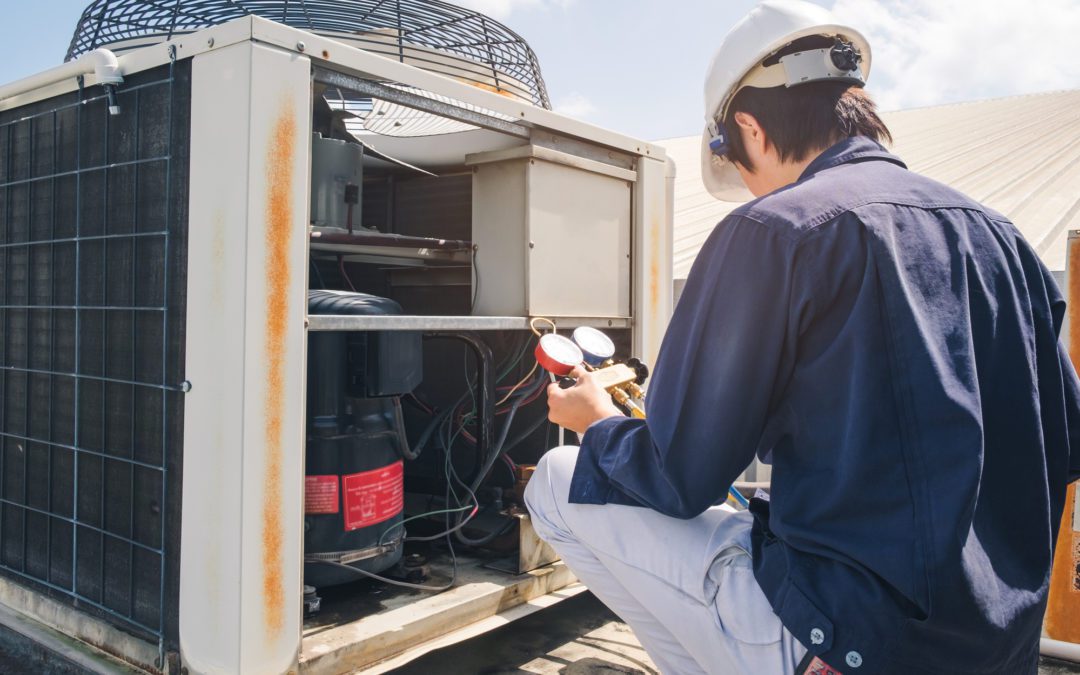Understanding every aspect of your HVAC system can be tricky, especially when several elements work together as a unit. The condensate line, otherwise referred to as the condensate drain line, performs several tasks but nothing more important than draining excess moisture. As a homeowner, you may be faced with the conundrum of where to run the AC condensate drain line. However, before making that decision, you need to understand the role of the condensate drain lines in the HVAC system.
What Exactly Is the AC Condensate Drain Line?
Since the HVAC system heats or cools the air, it releases moisture in the form of humidity. Your unit will produce between five to 20 gallons of water per day if it’s running as it should. The amount of moisture it produces depends on the humidity in the air and how much cold air the system is generating. The air conditioning condensate drain line is responsible for transporting the condensation away from the HVAC system.
Condensate lines are usually composed of plastic (PVC) or metal, with the former preferred by the majority of HVAC contractors. It connects to the air conditioner and leads to an area outside your home. Its primary duty is to move moisture and condensation away from the air conditioner. On some occasions, you may require a pump that assists with expediting the process, but in other cases, gravity suffices.
Why Is It Important?
If you’re a homeowner, you should know about the horrible consequences of moisture. It leads to the development of mold and mildew, which can affect the appearance of your property and the health of the occupants. Regarding the air conditioner, moisture can lead to corrosion that demands repairs or a replacement. For this reason, it’s essential to have a functioning condensate drain line for your air conditioner.
What Can Go Wrong?
Sometimes people mistake a leak in the condensate drain line for a plumbing issue. Any water leak can potentially cause hundreds or even thousands of dollars in repairs. If you notice that the pipe is leaking, the first thing to do is shut off the air conditioner and call an HVAC technician immediately. Bear in mind that frequent servicing of your air conditioner can prevent unexpected issues, including drain leaks.
The condensate drain line can become clogged with dust, dirt, debris, or even ice during the cold months. Since moisture doesn’t have a clear path to the outside, it will clog and cause problems indoors.
Alternatively, the air conditioner may not be in a physical position to push out the excess moisture, in which case, you’d require a condensate pump. This pump simply assists the system in ridding itself of the moisture build-up.
Sometimes, the HVAC technician who installed your air conditioner could have made an error with the installation process. Some HVAC systems use a condensate tray, and if this part isn’t sitting at the correct angle, it could lead to water leaks.
What Should You Do When You Suspect a Condensate Drain Line Issue?
If you don’t possess the knowledge, skills, or tools to clear the drain line, you should hire an HVAC contractor to have a look at the issue. Not only will they repair your system in no time, but when you have a professional on your property, they can advise you about other potential issues before they become larger and more costly problems. The best way to avoid this scenario of a leaky air conditioner is to stick to its servicing schedule. Only an HVAC technician can ensure your system operates smoothly and as intended.
Alternative Solutions
Homeowners across America adopt unique techniques to keep their condensate drain lines flowing throughout the year. One of these includes running white vinegar through the drain section on the outside of the air handler. Doing this would reduce the risk of an overflowing drain pan. Always flush the pipe with clean water and replace the cap on the vent afterwards.
Considerations
When installing your air conditioner, consult and ask for advice from your HVAC contractor. They would be in the best place to make a suggestion that would avoid massive damage if a leak were to occur. The condensate drain line should run through a section of the house that’s far from electricity cables, power points, or electric appliances.
However, to avoid the possibility of a leak completely, you must abide by the servicing schedule as set out by the manufacturer or the HVAC contractor. When you have a professional on-site, they will inspect all the crucial parts of the air conditioner to ensure that it’s in optimal condition. Furthermore, they can clean your ducts if you have them and ensure you have a fully operational air conditioner.
As a result, you avoid costly repairs and can enjoy a high-performance HVAC system at any time of the year.

